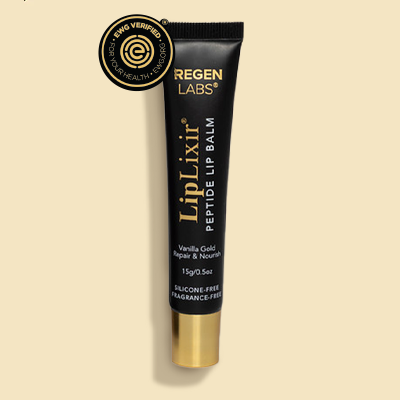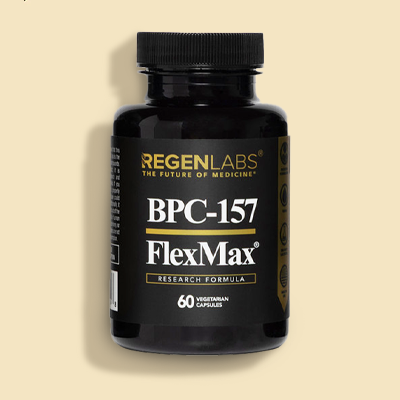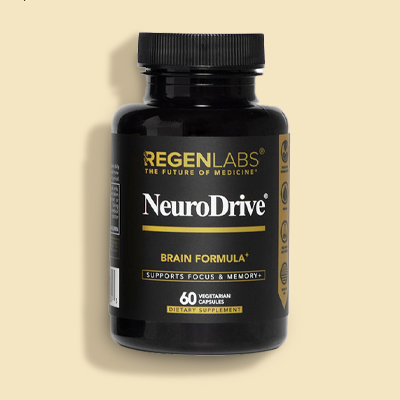Leaky gut syndrome, also known as increased intestinal permeability, is a condition gaining increasing attention for its connection to digestive issues, chronic inflammation, autoimmune conditions, and even mental health. While conventional medicine is still investigating its underlying mechanisms, many functional health practitioners believe that restoring gut lining integrity is key to improving overall well-being.
One compound that's gained momentum in gut health circles is BPC-157, a synthetic peptide originally derived from gastric juice. But can this peptide really help seal and repair a compromised gut barrier? Let’s explore the science behind intestinal permeability, the role of BPC-157, and how it fits into modern approaches to healing the gut.
What Is Leaky Gut Syndrome?
Leaky gut occurs when the tight junctions in the intestinal lining become loose, allowing partially digested food, toxins, and microbes to leak into the bloodstream. This can trigger an immune response that leads to inflammation, fatigue, skin issues, and sensitivities to food or chemicals.
Several factors may contribute to this breakdown in the gut barrier, including chronic stress, NSAIDs, processed foods, alcohol, and intestinal infections. Emerging research has also linked gut permeability to autoimmune disorders and metabolic disease.
How BPC-157 Works in the Gut
BPC-157 (Body Protective Compound-157) is a chain of 15 amino acids that’s derived from a protective protein found in the human stomach. It’s been shown in multiple preclinical studies to accelerate healing in the gastrointestinal tract, particularly by enhancing angiogenesis (the formation of new blood vessels), reducing inflammation, and promoting the expression of growth factors critical to tissue repair.
One of BPC-157’s most compelling qualities is its ability to repair intestinal epithelial tissue. In rodent models, it has helped reduce symptoms of inflammatory bowel disease and supported mucosal integrity. These effects suggest a strong potential role in addressing the root dysfunction behind leaky gut syndrome.
Key Mechanisms of Action
-
Supports mucosal lining repair: BPC-157 stimulates fibroblast activity and promotes epithelial healing, helping to reinforce the gut barrier.
-
Modulates inflammatory cytokines: It has been shown to regulate inflammatory signaling pathways, helping reduce systemic inflammation stemming from gut dysfunction.
-
Enhances gut-brain axis function: Because of its neuroprotective properties, BPC-157 may also reduce stress-induced damage to the gut lining by supporting dopamine and serotonin signaling.
How It Compares to Other Gut-Supportive Nutrients
While nutrients like L-glutamine, zinc carnosine, and collagen are often used to support gut healing, BPC-157 offers a unique multi-system approach that may deliver more targeted repair. It doesn’t just soothe symptoms—it promotes regeneration at the cellular level.
Supplement stacks that combine BPC-157 with traditional gut-friendly nutrients can offer a more synergistic effect. For example, Flex Max from Regen Labs is formulated to include additional cofactors for absorption and cellular repair, optimizing outcomes for those with chronic gut inflammation.
Is BPC-157 Safe for Long-Term Gut Support?
To date, studies in animal models have shown no evidence of toxicity even at high doses. Its safety profile appears robust, particularly when taken orally in clinically formulated supplements. Human trials are still ongoing, but early use in therapeutic settings suggests strong tolerability.
Integrating BPC-157 into a Gut Health Protocol
While BPC-157 may be a powerful ally, gut health requires a comprehensive approach. Consider stacking BPC-157 with:
-
High-quality probiotics to balance microbiota
-
Digestive enzymes to reduce digestive burden
-
Elimination of inflammatory foods like gluten, dairy, and processed sugar
-
Stress management techniques to modulate the gut-brain axis
When these practices are combined with a regenerative peptide like BPC-157, the potential for healing increases exponentially—especially for individuals with persistent digestive dysfunction or inflammatory conditions.
Final Thoughts
Leaky gut syndrome continues to be an area of active research and debate, but one thing is clear: the integrity of your intestinal lining is crucial for overall health. BPC-157 has shown remarkable promise in reinforcing this barrier, calming inflammation, and restoring balance to the gut.
If you're navigating digestive challenges or looking to improve gut resilience, a supplement like Flex Max may offer targeted, clinically clean support backed by emerging science.











